第70章 Chapter 15(1)
1863-1869
Pornic --'James Lee's Wife'--Meeting at Mr.F.Palgrave's --Letters to Miss Blagden --His own Estimate of his Work --His Father's Illness and Death;Miss Browning --Le Croisic --Academic Honours;Letter to the Master of Balliol --Death of Miss Barrett --Audierne --Uniform Edition of his Works --His rising Fame --'Dramatis Personae'--'The Ring and the Book';Character of Pompilia.
The most constant contributions to Mr.Browning's history are supplied during the next eight or nine years by extracts from his letters to Miss Blagden.Our next will be dated from Ste.-Marie,near Pornic,where he and his family again spent their holiday in 1864and 1865.
Some idea of the life he led there is given at the close of a letter to Frederic Leighton,August 17,1863,in which he says:
'I live upon milk and fruit,bathe daily,do a good morning's work,read a little with Pen and somewhat more by myself,go to bed early,and get up earlyish --rather liking it all.'
This mention of a diet of milk and fruit recalls a favourite habit of Mr.Browning's:that of almost renouncing animal food whenever he went abroad.It was partly promoted by the inferior quality of foreign meat,and showed no sign of specially agreeing with him,at all events in his later years,when he habitually returned to England looking thinner and more haggard than before he left it.
But the change was always congenial to his taste.
A fuller picture of these simple,peaceful,and poetic Pornic days comes to us through Miss Blagden,August 18:
'...This is a wild little place in Brittany,something like that village where we stayed last year.Close to the sea --a hamlet of a dozen houses,perfectly lonely --one may walk on the edge of the low rocks by the sea for miles.Our house is the Mayor's,large enough,clean and bare.
If I could,I would stay just as I am for many a day.
I feel out of the very earth sometimes as I sit here at the window;with the little church,a field,a few houses,and the sea.
On a weekday there is nobody in the village,plenty of hay-stacks,cows and fowls;all our butter,eggs,milk,are produced in the farm-house.
Such a soft sea,and such a mournful wind!
'I wrote a poem yesterday of 120lines,and mean to keep writing whether I like it or not....'
That 'window'was the 'Doorway'in 'James Lee's Wife'.
The sea,the field,and the fig-tree were visible from it.
A long interval in the correspondence,at all events so far as we are concerned,carries us to the December of 1864,and then Mr.Browning wrote:
'...on the other hand,I feel such comfort and delight in doing the best I can with my own object of life,poetry --which,I think,I never could have seen the good of before,that it shows me I have taken the root I DID take,WELL.
I hope to do much more yet --and that the flower of it will be put into Her hand somehow.I really have great opportunities and advantages --on the whole,almost unprecedented ones --I think,no other disturbances and cares than those I am most grateful for being allowed to have....'
One of our very few written reminiscences of Mr.Browning's social life refers to this year,1864,and to the evening,February 12,on which he signed his will in the presence of Mr.Francis Palgrave and Alfred Tennyson.It is inscribed in the diary of Mr.Thomas Richmond,then chaplain to St.George's Hospital;and Mr.Reginald Palgrave has kindly procured me a copy of it.A brilliant party had met at dinner at the house of Mr.F.Palgrave,York Gate,Regent's Park;Mr.Richmond,having fulfilled a prior engagement,had joined it later.
'There were,in order,'he says,'round the dinner-table (dinner being over),Gifford Palgrave,Tennyson,Dr.John Ogle,Sir Francis H.Doyle,Frank Palgrave,W.E.Gladstone,Browning,Sir John Simeon,Monsignor Patterson,Woolner,and Reginald Palgrave.'
Mr.Richmond closes his entry by saying he will never forget that evening.
The names of those whom it had brought together,almost all to be sooner or later numbered among the Poet's friends,were indeed enough to stamp it as worthy of recollection.One or two characteristic utterances of Mr.Browning are,however,the only ones which it seems advisable to repeat here.The conversation having turned on the celebration of the Shakespeare ter-centenary,he said:
'Here we are called upon to acknowledge Shakespeare,we who have him in our very bones and blood,our very selves.The very recognition of Shakespeare's merits by the Committee reminds me of nothing so apt as an illustration,as the decree of the Directoire that men might acknowledge God.'
Among the subjects discussed was the advisability of making schoolboys write English verses as well as Latin and Greek.'Woolner and Sir Francis Doyle were for this;Gladstone and Browning against it.'
Work had now found its fitting place in the Poet's life.
It was no longer the overflow of an irresistible productive energy;it was the deliberate direction of that energy towards an appointed end.
We hear something of his own feeling concerning this in a letter of August '65,again from Ste.-Marie,and called forth by some gossip concerning him which Miss Blagden had connected with his then growing fame.
'...I suppose that what you call "my fame within these four years"comes from a little of this gossiping and going about,and showing myself to be alive:and so indeed some folks say --but I hardly think it:for remember I was uninterruptedly (almost)in London from the time I published 'Paracelsus'till I ended that string of plays with 'Luria'--and I used to go out then,and see far more of merely literary people,critics &c.than I do now,--but what came of it?